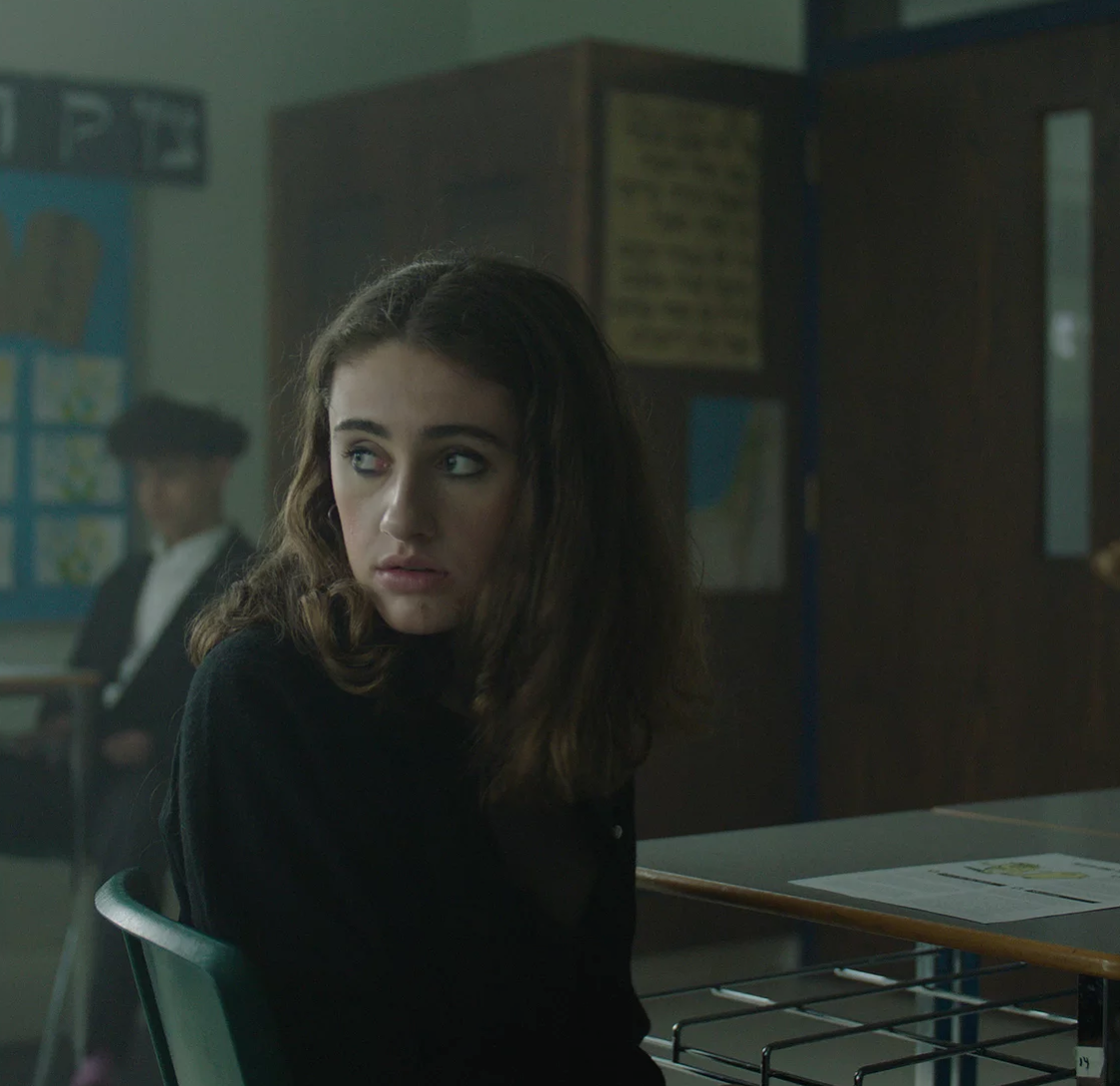
Tahara focuses on pair of young Jewish women who are grieving the loss of their Hebrew school classmate following a suicide.
Carrie Lowstein (Madeline Grey DeFreece) and Hannah Rosen (Rachel Sennott) are best friends. When we first meet them in Tahara, they are Hebrew school classmate Samantha Goldstein’s funeral. Following this, they attend a session run by Moreh Klein (Bernadette Quigley) allowing for them to learn the Judaic teachings on grief. It’s a film that runs short of 80 minutes so there’s not enough here as far as Talmudic teachings are concerned. It would certainly be interesting to see what the film could do with a longer running time.
Tahara seamlessly weaves between live-action and animated footage with a distinct difference in the aspect ratio. The latter gets wide-screen treatment while the live-action footage is depicted by way of a 1:1 square. The younger generations are constantly living life on their cell phones so this makes for a bold yet interesting choice. This choice definitely makes it more experimental in nature.
For non-Jewish readers, the film takes it’s title from the Jewish purification ritual of cleansing the body prior to burial. This ritual takes its root in the Book of Kohelet 5:14. It’s a ritual performed by the funeral director and staff or the chevra kadisha (holy society). The more you know!
Having grown up with a Jewish education and inside Jewish synagogues, it can be very easy to nitpick even the small things. Granted, I’ve also grown even more observant over the years so I hope you can see where I am coming from. Appropriately, there’s a lot of Hebrew in the film and the actors have a good grasp of it. If you’re not familiar with the denominations within Judaism, the use of Siddur Sim Shalom means that the film takes place within a Conservative synagogue.
For all that I have to be critical about in the film, there is a lot to enjoy about this film. Within the Jewish community of late, there has been a lot of dialogue when it comes to racism. We see this by an increase of police in Jewish neighborhoods at the expense of the People of Color living in the neighborhood. On top of this, there are Jews of Color who are constantly having their Jewish credentials questioned. Let’s be honest—this isn’t fair and people should do better. The fact that Carrie Lowstein is a Jew of Color—let alone in the LGBTQ community—may be a cinematic first. It’s a breakthrough in Jewish representation because Jews of Color do exist but are so often ignored when it comes to the stories told on screen.
Let’s hope more films follow Tahara’s lead when it comes to representing people who reside outside of the largely white-passing Ashkenazi Jewish community.
DIRECTOR: Olivia Peace
SCREENWRITER: Jess Zeidman
CAST: Madeline Grey DeFreece, Rachel Sennott, Daniel Taveras, Joe Burns, Shlomit Azoulay, Bernadette Quigley, Lynne Taylor, Jenny Lester, Keith Weiss, Martin Leubitz, Ellie Anthony, Melissa Juliet Lawson, Rachel Wender




